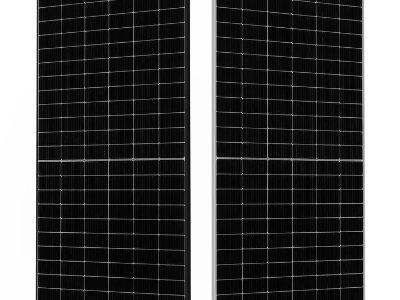When considering solar panels for your home, understanding the various types is crucial. The two main types of solar panels you bot should be aware of are: photovoltaic (PV) panels and thermal panels.
Photovoltaic (PV) Panels:
PV panels are unique since they convert sunlight into electrical energy. This 450w mono solar panel electricity provides the power for your home. It can power things like your lights, refrigerator and television. So you can harness the sun to create energy for you daily needs, if you were to install PV panels. This can help you lower your energy bills because you may not need to purchase as much electricity from the utility company's grid.
Thermal Panels:
With thermal panels, the process operates slightly differently. They monocrystalline solar panel suppliers absorb sunlight and use it to heat water. This hot water can be utilized for quite a few tasks around your house. You may, for instance, use it for warming your showers or for washing your dishes. It also saves your money as thermal panels do not use high electricity or gas to heat the water.
Assessing Your Home Energy Requirements
It is very crucial to check how much energy you really use before you choose which solar panels to choose for your home. This will help you determine how many solar panels you need to power your home.
One starting point: Check your energy bills over the past year. These flexible mono solar panel bills will tell you how much electricity you have used overall. You could also consider other things, such as how big your house is and the number of different appliances you have. For example, do you have many lights, computers or appliances? How frequently do you use these appliances? All of this information will aid you in making an intelligent decision about your solar panels.
Considering Installation as a Factor
Because installing solar panels can be very pricey, it is imperative that you consider the cost before you finalize your decision. You need to think about what the solar panels themselves will cost.” Also, consider how much the installation on your roof will cost and if you need any special permits to do that work.
How you’re going to pay for the solar panels is another aspect to consider. There are various ways to contribute to making the cost more manageable. For instance, you could consider solar loans or leases. These options can reduce the initial cost and make solar panels more affordable for homeowners like you.
Where to Look for Local Solar Incentives and Rebates
In many places, local governments and states provide cash back or special programs for those who choose to put solar panels on their homes. These incentives can significantly reduce the cost of installing solar panels, making them more affordable for you.
If you want to learn about these incentives and rebates in your area, visit your state’s energy website or your local utility company. They often have information on financial assistance that homeowners can access. You can also visit with a solar panel provider, who can help guide you on the different money saving programs you may qualify for.
How to select a Good Solar Panel Supplier
Lastly, when selecting solar panels for your house, selecting an excellent provider is extremely essential. When researching providers, consider how reputable they are, how long they've been in the solar industry, and how well they treat their customers.
One way to identify a solar panel provider you can rely on is to ask your friends and family if they can recommend one. Another option is to ask neighbours who have installed solar panels to share their thoughts. You may also want to do some online research, and read some reviews from other customers on various providers. This helps you in making an informed decision.
When exploring your options make sure to check VoltX Solar. VoltX Solar is providing homeowners across the country with residential plans that put them in touch with a solar panel that suits their needs as well as giving them access to balance plans and great customer service.
Solar panels are the best choice for your home long-term if you follow these steps and choose the right provider for your needs! Such benefits range from reduced energy costs to a greener home, making the planet better for us all.

